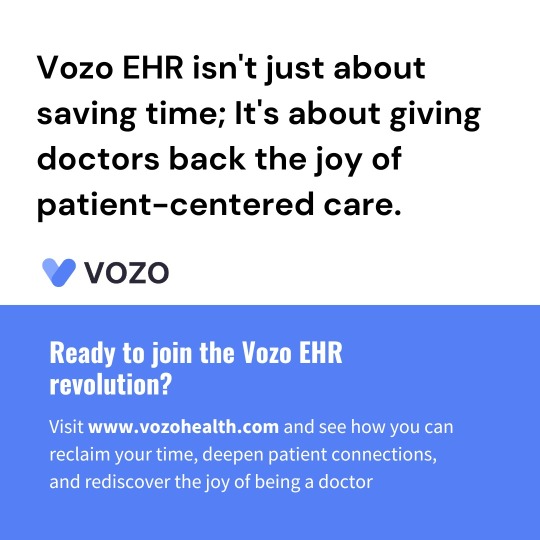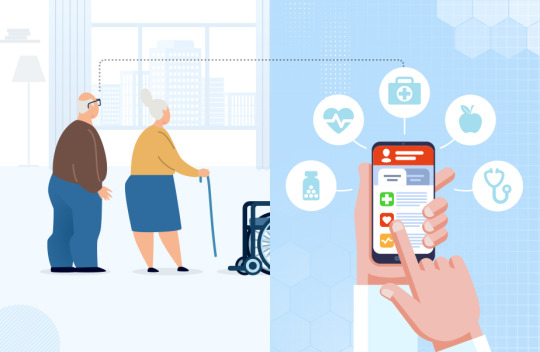#chroniccare
Text
Chasing the Silver Bullet
New Obesity Medications Offer Hope But Not a Panacea
This week I am talking to Carolyn Jasik, MD, (@DrJasik) CMO for Omada Health, a virtual-first chronic care provider helping members make lasting changes to improve health and reduce care costs for organizations
Excitement is growing around new GLP-1 receptor agonist medications for treating obesity, with promising weight loss results. However,…

View On WordPress
#access#agonist#benefit#challenges#chronic care management#chronic disease#ChronicCare#Communication#Diabetes#discontinuation#epidemic#glp#GLP1Agonists#Healthcare#HealthPolicy#Incremental#Incremental Healthcare#IncrementalHealth#LifestyleChanges#MedicalInsights#medication#Medicine#Obesity#ObesityEpidemic#ObesityMedications#ObesityTreatment#OmadaHealth#patients#side effects#TheIncrementalist
0 notes
Text
Living with Chronic Disease: A Journey Through Hope and Perseverance by Idongesit Okpombor MD

Living with chronic disease can be a challenging and overwhelming experience. It can change every aspect of your life and create deep feelings of fear, discomfort, and uncertainty.
However, it's important to understand that living with chronic disease does not have to be a death sentence. For those who choose to navigate through the difficulties, it can be a journey of hope and perseverance.
This blog post will explore what it means to live with a chronic disease and the steps you can take to maintain a positive outlook on life. We'll cover everything from the physiological effects of chronic disease to the emotional toll it can take on your mental health.
Additionally, we'll look at different coping mechanisms that patients living with chronic diseases use to maintain hope and focus on the present.
We'll touch on the importance of taking care of your physical well-being, seeking support from loved ones, finding purpose in life, and setting realistic goals.
Accepting a New Reality
One of the key steps to living with chronic disease is accepting a new reality. This can be a difficult task, as it may involve giving up activities and routines that were once enjoyed, as well as adjusting to new limitations and uncertainties.
However, acceptance is an essential part of the journey through hope and perseverance. It allows you to redirect your energy towards finding new ways to adapt and manage your condition, rather than clinging to unrealistic expectations or continuously mourning what was lost.
While coming to terms with a chronic illness may be a challenging process, it is important to remember that it is a journey, not a destination. By accepting a new reality and approaching each day with a positive mindset, you can take steps towards finding joy and fulfilment in your life, regardless of your health challenges.
Openly Communicating With Your Care Team
Living with a chronic illness can be challenging, but openly communicating with your care team is one of the most important things you can do to manage your condition.
Your care team may include doctors, nurses, and other healthcare professionals who work together to support your treatment and care.
By communicating openly, you can help your care team understand your needs and goals, and work together to develop a personalised care plan that suits your unique situation. This may include discussing your symptoms, medications, lifestyle choices, and any concerns you may have about your condition.
By working together and staying informed, you can optimise your care and better manage your chronic disease over time.
Adapting to New Demands on Your Time
Living with a chronic disease can significantly alter your life and priorities, leading to new demands on your time. Adapting to these changes can be a challenging process, but it is essential for managing the disease effectively.
One approach that can help is to create a daily routine that incorporates the necessary treatments and self-management practises.
This might involve scheduling medication times, keeping track of daily symptoms, and arranging for transportation to medical appointments.
Additionally, it is crucial to communicate openly with family, friends, and colleagues about the changes in your life and your need for support. With dedication and flexibility, it is possible to find a new balance and adapt to the demands of living with a chronic disease.
Making Healthy Lifestyle Changes
Making healthy lifestyle changes can be intimidating for those suffering from chronic diseases, but it is a necessary step on the path to better health.
Making small changes to your everyday routine can have a significant impact on your overall wellbeing.
It's important to start with manageable changes, such as increasing physical activity by taking a 10-minute walk each day or swapping out processed snacks for fresh fruits and vegetables.
Gradually increasing the duration and intensity of physical activity and incorporating healthy food habits can lead to long-term success.
It's also important to prioritise adequate sleep and stress management techniques, as both can have a significant impact on overall health.
Remember, making healthy lifestyle changes is a process that requires patience, perseverance, and a supportive network that includes healthcare providers, friends, and family.
Developing Coping Strategies
Developing coping strategies is an essential aspect of living with chronic disease.
Coping strategies refer to the techniques and approaches that people use to manage the physical, emotional, and psychological challenges that arise from living with chronic disease.
Coping strategies can vary from person to person and even from day to day. It is important to identify strategies that work best for each individual, and this may involve experimentation and trial and error.
Some common coping strategies include stress reduction techniques, such as meditation or deep breathing exercises, creating a strong support system with family and friends, seeking professional counselling, and engaging in regular physical activity.
Developing coping strategies can help individuals maintain a positive outlook, reduce stress, and improve their overall well-being while living with chronic disease.
Connecting with Others Living with Chronic Disease
Connecting with others who are also living with chronic disease can provide powerful emotional and practical support. Sharing similar experiences and feelings with others can make you feel less alone and help normalise the challenges of living with chronic illness.
There are many ways to get connected, including joining in-person support groups, participating in online forums and chat rooms, and attending educational events or workshops.
These connections can also provide a wealth of valuable information, resources, and strategies for managing symptoms and coping with the emotional impact of chronic disease.
Remember, you don't need to go through this journey alone. Building a support network with other individuals who understand what you are going through can be a vital aspect of living with chronic disease.
Staying Informed About Your Condition
Staying informed about your condition is an integral part of managing chronic disease.
Healthcare providers are the primary source of information, but there are also several other reliable sources of information available.
Make sure to regularly consult with your healthcare team and ask questions. They can provide you with the latest updates and developments in treatment options and advise you of lifestyle changes that can have an impact on your condition.
Additionally, there are many reputable resources, such as online articles, support groups, and community forums, that can provide valuable information and support.
Remember, it is crucial to prioritise staying informed about your condition and to constantly evaluate and adjust your strategies for managing it. This will empower you to take an active role in your healthcare and make informed decisions to improve your quality of life.
Seeking Support from Family and Friends
Living with a chronic disease can be challenging and emotionally draining, but seeking support from loved ones can be invaluable.
Family and friends can provide a source of emotional support, motivation, and encouragement. It is important to have a supportive network of people who understand the struggles they face.
This can come in the form of physical support, such as assistance with daily tasks or transportation to medical appointments, as well as emotional support, such as being a listening ear or providing words of encouragement.
It is crucial to communicate openly and honestly with loved ones about the challenges of living with a chronic disease and to reach out to them for help when needed. Seeking support from family and friends can not only ease the burden of living with a chronic disease, but can also lead to a greater sense of connection, hope, and perseverance.
Finding Ways to Celebrate Your Wins
Living with a chronic disease can feel like an uphill battle, but it is important to remember that even small victories deserve to be celebrated.
Whether you have achieved a goal related to managing your symptoms, completed a task that may have felt overwhelming before, or simply had a good day despite the challenges that you face, finding ways to celebrate your wins can help you stay motivated and keep your spirits up.
It is important to acknowledge the hard work and effort that you put in every day to manage your chronic condition, as this can help build resilience and promote a positive outlook.
Some ways to celebrate your wins could be by treating yourself to a favourite activity, spending time with loved ones, or acknowledging your successes in a journal or gratitude list.
Don't forget to also surround yourself with supportive individuals that will acknowledge your wins and cheer you on as you go through this journey of hope and perseverance.
Finding Your Own Path to Hope and Perseverance
Finding your own path to hope and perseverance is an essential part of living with a chronic disease. No matter what condition you have, it's important to remember that you are not alone in your journey.
Many people with chronic illnesses have found that connecting with others who share their struggles has been incredibly helpful in maintaining hope and perseverance. You may find online support groups, local support groups, or friends and loved ones to talk to about your experiences.
Additionally, mindfulness practises, such as meditation and yoga, have been shown to decrease stress levels and improve overall wellbeing. It's important to experiment with different coping strategies until you find what works best for you.
Remember to take things one day at a time, and celebrate each small victory along the way. With perseverance and a positive attitude, you can continue to thrive in spite of your chronic illness.
In conclusion, living with a chronic disease is a difficult journey that challenges a person's physical and emotional well-being. However, the journey can also be an opportunity for growth, hope, and perseverance.
Through self-care, seeking support from loved ones and healthcare professionals, and living a purposeful life, you can break free from a victim mentality and find strength and resilience to thrive.
As difficult as it may be, every day of living with a chronic disease is an opportunity to appreciate life and all it has to offer.
NEXT READ: Understanding the Complexities of Chronic Diseases
Subscribe to our newsletter.
vimeo
#chronicdisease#chronicillness#chronicpain#invisibleillness#autoimmunedisease#fibromyalgia#arthritis#multiplesclerosis#crohnsdisease#endometriosis#diabetes#asthma#mentalhealth#chronicfatigue#raredisease#chronicwarrior#chroniclife#chroniccondition#chronichealth#chroniccare
0 notes
Link
#ulcerative colitis#IBD#ibd management#creda#credahealth#chroniccare#healthmonotoringapp#crohn's disease
0 notes
Text
vozoehr
As the Necessity of the EHR system in healthcare practice, Vozo strives to provide the best EHR system to help provide better healthcare practice for patients and increase in revenue.
Our EHR solution is designed for smart workflow, managing the patient's records safely, and securely in a well-organized way.
Vozo EHR system offers a vast range of features that are especially US healthcare practices;
Easy-to-Use User Interface: Our simple system interface ensures that non-technical staff can find easy-to-manage records in the Vozo EHR system.
Customized Templates: The Vozo EHR system allows you to save time in creating documents from scratch. With customized documentation, you can speed up the process of documenting health records.
Seamless Integration: Vozo EHR seamlessly integrates with other modules like e-prescribing, lab integration, and other modules.
Patient Portal: Our Electronic Health Record (EHR) system provides patients with easy access to their medical records, and the ability to schedule appointments, request prescription refills, and view complete medication history.
Revenue Cycle Management: Our team of experts can guide you through the whole RCM process, from start to finish, ensuring optimal revenue for your practice.
Billing and Reporting: Managing your medical practice has never been easier with Vozo. Schedule appointments, submit claims, pay bills online, and streamline your workflow seamlessly.
Telehealth Software: Our software enables patients to have virtual visits directly from the EHR system, providing improved patient care in a secure online platform.

#best ehr for mental health#ehr pricing models#provider#patientportal#best patientportal#ehr#chroniccare managemnet
0 notes
Text
Chroniccare Management in Treatment
Treating health in a better way makes a great difference. Keeping this in mind, Chronic care management in Princeton Junction is always there for you! Chronic Care Management (CCM) has emerged as a vital component in healthcare offering a proactive and comprehensive approach to treating individuals with chronic conditions.
0 notes
Text
Caregiver Burden Among Families Of Children With Chronic Disease

Looking after a child with a chronic disease can be a very challenging experience. In this study, researchers looked at how sociodemographic and psychosocial factors, such as the caregiver's age, education level and the family's income, impact the burden of caregiving.
#chronicillness #caregiver #caregiving #chroniccare #familyhealth #healthcare #mentalhealth #disability #chronicsupport #support #chronicillnesssupport #healthylifestyle #mentalwellness #healthyliving #caregiversupport
Read the full article
#Caregiverburden#Familycaregivers#Familyfunctioning#Familysupport#Pediatricchronicdiseases#Psychosocialfactors#Socialsupportnetworks#Sociodemographicvariables#Well-being
0 notes
Photo

Chronic Care Management Software Solutions
Wi4 is a leading Chronic Care Management Software company in the USA having experienced Chronic Care Management Software Solution developers. We provide dedicated Chronic Care Management Software development services to our customers which leads to a great experience.
Visit- https://wi4.org/services/chronic-care-management-software-solutions/
#chroniccare #medical #medicalapp #hospital #hospitalmanagement #appdevelopment #development #healthcareapp #appdeveloper #healthcare #healthcareinnovation #mobileapp
0 notes
Text
Chronic Care Management Software
Our Hum health provides the best Chronic Care Management services in the USA. Hum health Chronic Care Management service helps to record our patients structured health information.
https://www.humhealth.com/chronic-care-management/
0 notes
Text
The Centers for Medicare & Medicaid Services (CMS) recognizes that CCM services are critical components of primary care that promote better health and reduce overall health care costs. In 2015, Medicare began paying separately under the Medicare Physician Fee Schedule (PFS) for CCM services furnished to Medicare patients with multiple chronic conditions.
0 notes
Text

How the healthcare providers can effectively engage in with their chronic disease management populations? Here are the top 4 remote advancements to help #chroniccaremanagement.
Read More:https://www.capminds.com/blog/top-4-remote-technologies-for-chronic-care-management/
0 notes
Photo

10 healthcare startups that could be M&A targets after Teladoc's record-breaking $18.5 billion deal for Livongo
more news -> www.onehot.news
#news#coronavirus#libusine…#ul#lithe#industry#record#deal#lion#185#struck#chroniccare#analyst#sending
0 notes
Text
Understanding the Complexities of Chronic Diseases

Chronic diseases are often referred to as silent killers, mainly because they develop slowly over time and can remain undetected until they reach advanced stages. These conditions are characterized by long-lasting effects on the body, and they can result in significant limitations in daily life activities.
The burden of chronic diseases is enormous, affecting millions of people worldwide, and the prevalence is continually increasing. While the causes of these diseases are multifactorial, they are often linked to lifestyle choices, such as poor diet, lack of exercise, and smoking.
Understanding the complexities of chronic diseases is critical to managing and preventing their onset. Chronic diseases are long-term, persistent, and often incurable, requiring a comprehensive approach to treatment that focuses on minimizing the impact and improving quality of life.
This approach entails understanding the biological, genetic, environmental, and social factors that contribute to chronic diseases' development and progression.
In this blog post, we delve into the complexities of chronic diseases. READ MORE
#chronicdiseases#chronicillness#chronicpain#chronicfatigue#chroniccondition#chronicwarrior#chronichealth#chroniccare#chronicawareness
0 notes
Text
Chronic Care Remote Physiological Monitoring (RPM) and its Medicare Reimbursement Codes

Chronic Care Remote Physiological Monitoring (RPM) or Remote Patient Monitoring is a healthcare practice that involves the use of technology to monitor patients in a virtual manner. This practice has gained popularity in recent years and is being utilized with great success in the treatment of chronic care patients.

Specifics of RPM
RPM is a form of real-time telehealth that employs the use of technology in the live collection of vital parameters such as heart rate, blood pressure, weight, or any other relevant measure. This information is then sent to health professionals, who can analyze the data and make informed decisions on the patient’s health. Another beneficial factor is RPM devices often notify both patients and care providers if any abnormal vitals are detected.
How do patients benefit from RPM?
An extensive RPM system gives patients increased access to healthcare. New innovations in the health-based tech industry have afforded patients with high-quality devices to track their health progress. Patients with chronic care conditions that require extensive care are able to monitor any changes to their health on a daily basis. The interactive nature of RPM allows patients to be more involved in their care. RPM is also proven to decrease both readmission and emergency situations. The combination of these factors ultimately results in higher patient satisfaction.

How do providers benefit from RPM?
RPM has given providers an opportunity to stay updated with their patients, even when they cannot physically meet with them. The rapid growth of RPM technologies has also presented care providers with additional streams of revenue. The CMS has recognized this and introduced new codes that provide reimbursement for virtual care related to RPM. RPM also increases the number of patients a clinic can serve as well as the efficiency of care.
RPM and COVID-19
The ongoing Covid-19 pandemic has brought an increased level of attention to RPM practices. Patients and providers with existing RPM infrastructure are greatly benefiting from the ability to monitor health through a virtual platform. Observing a successful model of RPM use during the pandemic will convince many providers to adopt such practices moving forward.
Different Medicare CPT Codes within RPM
Care Providers can use the following CPT codes to generate revenue from the establishment and monitoring of RPM practices.
CPT 99453
CPT 99453 is an RPM code that is used when establishing RPM technologies and educating the patient about safe practices. In 2020, the average revenue received when issuing this code is $19. It must be noted that this code can only be issued one time when installing the necessary technology. Any additional support related to technology or patient education cannot be issued using this code.
CPT 99454
CPT 99454 is an RPM code that can be used to cover the transmission of biometric recordings and program alerts. ThIn 2020, the average revenue received when issuing this code is $64. The reimbursement cost also covers the cost of the device(s) involved in the care. This code is to be issued every 30 months. In order to issue this code, all RPM devices used in the care process must be FDA approved.
CPT 99457
CPT 99457 is an RPM code that can be issued for any care that is at least 20 minutes per month and is monitored by a qualified health professional. In 2020, the average revenue received when issuing this code is $52. This code covers any non-face-to-face interactions between providers and patients that involve the patient’s RPM progress. Providers must not issue CPT 99457 or any other code for any care that is less than 20 minutes per month.
CPT 99458
CPT 99458 is a new RPM code that addresses care provided by a qualified health professional for every additional 20-minute interval after the first 20 minutes of RPM services, which is currently billed under CPT 99457. This code came into effect on January 1, 2020, and has an estimated reimbursement rate of $42. This code must be used as an add-on to the existing RPM’s CPT 99457 for billing.
Challenges with RPM
Despite the previously mentioned benefits of an RPM scheme, there are still a few challenges that have prevented such programs from being widely accepted.

Despite these challenges, RPM technology remains a promising force in the healthcare industry. Its revolutionary nature is reshaping the patient-provider relationship for the better. This care model will help move from reactive care to proactive care. Providing immediate attention will help reduce readmission rates, reduce hospital admissions, etc. thereby helps reduce the overall cost.
Schedule a demo and talk to our RPM solution experts and get your RPM started in a jiffy!
0 notes
Photo

this is Barry - he wants us to keep him safe in his long term care home & we need to cause well that’s what we do - keep people safe & save their lives #OG #UrbanAngels #StopAtNothing #TakeAction #seniors #NoMoreHomicides #SaveALife #SaveAKid #SaveAPlanet #RedOctober #CDNpoli #health #care #community #unity #hospitals #OntarioHealthTeam #PrimaryCare #AcuteCare #ChronicCare #PersonalSupportWorkers 100K #PSW #HomeCare #CommunityCare #cupe4308 #cupe7797 #CutsHurtKids (at Allan Gardens Park and Conservatory) https://www.instagram.com/p/B3WGFZigDyb/?igshid=1u6epf371mgqu
#og#urbanangels#stopatnothing#takeaction#seniors#nomorehomicides#savealife#saveakid#saveaplanet#redoctober#cdnpoli#health#care#community#unity#hospitals#ontariohealthteam#primarycare#acutecare#chroniccare#personalsupportworkers#psw#homecare#communitycare#cupe4308#cupe7797#cutshurtkids
0 notes
Photo

Prostate Cancer Treatment: Surgery or Radiation? - https://bit.ly/2DfhIcl #HubChart #chroniccaremanagement #chroniccare #ccm #virtualhealth #Telehealth #Telemedicine #Collaboration #Health https://www.instagram.com/p/BtjLU1ZADbP/?utm_source=ig_tumblr_share&igshid=8ahuk8euwwhy
#hubchart#chroniccaremanagement#chroniccare#ccm#virtualhealth#telehealth#telemedicine#collaboration#health
0 notes
Photo

Is incorrect coding impacting your ACO? Let our certified documentation experts identify all chronic conditions that improve your ACO’s patient outcomes & thereby shared savings. Contact Vee Technologies to hear more about improving the HCC capture rate for your ACO.
Go with the leader in ACO Risk Adjustment!
For More Info: https://www.veetechnologies.com/
0 notes